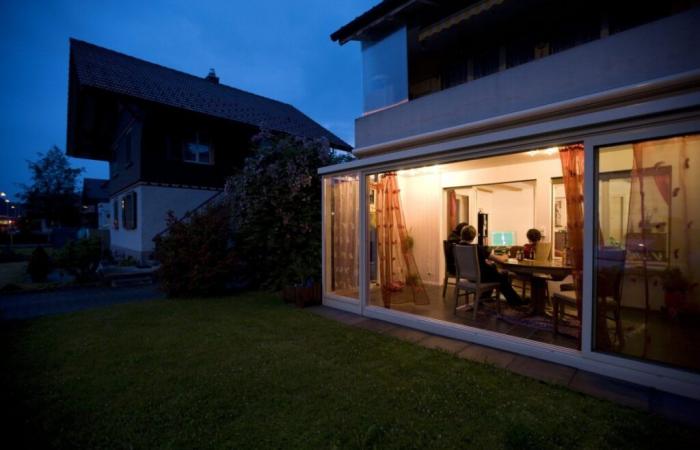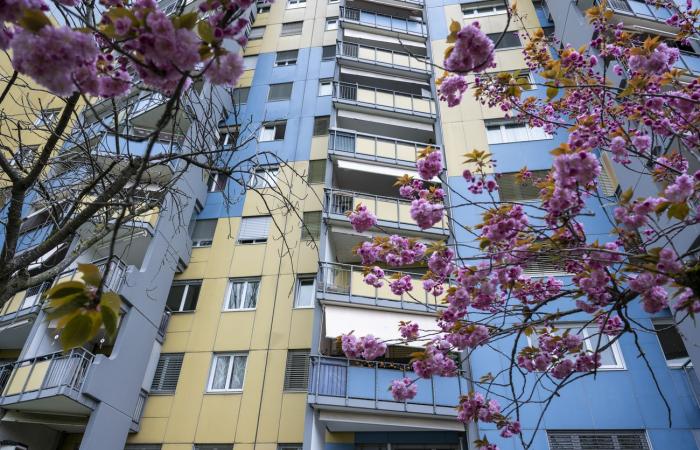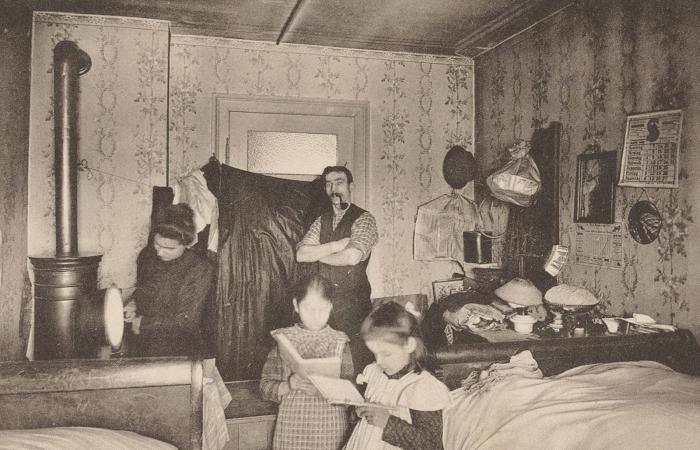Most Swiss accommodation is rented from owners.
Keystone / Alessandro Della Bella
Swiss owners and tenants have just experienced a new episode of their eternal antagonism, with a double victory for tenants at the polls. Why are the two groups still at loggerheads in Switzerland? Does this permanent antagonism serve the interests of one or the other?
This content was published on
December 4, 2024 – 08:50
It is undeniable that Switzerland is a country of tenants when compared to many other countries in Europe. Nearly 60% of households rent a home rather than taking out a mortgage to buy their own property.
Finding the right balance between the rights of owners and tenants is therefore a particularly sensitive social issue in Switzerland.
+ Why rich Switzerland is a country of tenants
On the one hand, the Tenants’ Association (Asloca) continually complains about the greed of landlords. On the other hand, the owners’ association (HEV) deplores that its members have their hands tied by restrictive rules.
The malaise has existed for decades. Neither side ever seems completely satisfied with the existing laws that govern rent increases, evictions and subletting.
An impasse that hinders reforms
“It’s a dead end,” notes Dominik Meier, parliamentary journalist at SRF. “For 30 years, all attempts at reform and discussions have failed. Important issues such as the yield allowed for landlords are poorly regulated and rents are rising. Regulations hinder the construction of housing and living space is becoming scarce.”
These issues were inevitably taken up by political parties. Left-wing parties chose to side with tenants, while their right-wing counterparts took up the cause of landlords.
We can say that the battle reached its climax during the federal votes of November 24, when the people rejected two parliamentary decisions which would have made it easier for landlords to evict tenants and limited the practice of subletting.
“It is time to stop this trench war between tenants and owners,” declared Economy Minister Guy Parmelin after the vote. “Do we want to wear each other out?”
+ Why it is increasingly difficult to access property in Switzerland
Guy Parmelin expressed his exasperation at the failed attempts to bring the opposing parties together to find solutions. He once again invited tenant and owner associations to sit down around a negotiating table in order to better understand each other.
Tensions worsen
This impasse helps to explain the fact that “our rental law has practically not changed since 1990, while the conditions of the rental housing market have evolved significantly,” added Guy Parmelin.
“Tensions are completely normal if we consider that landlords have an interest in extracting the highest possible rents from their properties, while tenants want to pay as little as possible, or at least not more than what they can afford,” says Jennifer Duyne Barenstein, director of the Research Center for Architecture, Society and the Built Environment at the ETH Zurich (ETH).
“With the current shortage of affordable housing, particularly in cities, growing real estate speculation and large-scale demolition of affordable housing in the name of densification or energy renovations, tensions are naturally increasing,” she adds.
Plus
Plus
Golden cages and rising rents: the Swiss rental market is facing difficulties
This content was published on
Dec 01 2023
In Switzerland, raising the mortgage reference rate could hurt tenants.
read more Golden cages and rising rents: the Swiss rental market is facing difficulties
Jennifer Duyne Barenstein’s department at ETH Zurich is currently part of a European Union research project aimed at reducing housing inequalities in nine European countries, including Switzerland.
Finding the right balance between the interests of landlords and tenants is a crucial aspect of a healthy rental market. Jennifer Duyne Barenstein notes that excessive protection of tenants can lead owners to leave homes empty or not carry out renovation work, including energy renovation.
More affordable housing
“At the same time, the possibility of landlords terminating rental contracts due to renovation and subsequently significantly increasing rents is very problematic and is currently one of the reasons why we are facing a crisis accessibility to housing in many Swiss cities,” specifies the specialist.
There are few signs of a thaw in relations between tenants and landlords. Asloca President Carlo Sommaruga hailed the result of Sunday’s vote as a rebuke to the “unbearable arrogance” of real estate circles.
The tenants’ association is also committed to intensifying its activities, after launching a popular initiative this summer against “too high rents”. Furthermore, she says she is ready to return to the polls if Parliament decides next year to increase the power of owners to increase rents. Parliament is expected to vote on two such proposals during the spring session.
Plus

Plus
When the housing shortage was the workers’ problem
This content was published on
03 nov. 2023
In Switzerland, the first debates around the housing crisis date back to the second half of the 19th century.
read more When the housing shortage was the workers’ problem
Jennifer Duyne Barenstein believes that increasing the number of affordable housing is a way to break the deadlock and improve the living conditions of tenants. Four years ago, the electorate rejected a proposal to increase the supply of affordable housing from 5% to 10% of the total housing stock. However, the specialist believes that the time has come to re-examine the issue.
“There is a dire need to increase the supply of nonprofit affordable housing. Currently, less than 5% of housing stock is owned by nonprofit organizations, such as housing cooperatives, she notes. Increasing the supply of nonprofit housing would have a direct and indirect positive impact on the housing market.”
Proofread and verified by Reto Gysi von Wartburg / translated from English with the help of Deepl / kro








